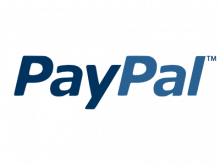PayPal, Lenovo Launch New Campaign to Kill the Password
A consortium including PayPal and Lenovo, the world’s second-largest PC manufacturer, has launched a set of technology standards that could reduce reliance on passwords, potentially making online accounts more secure.
Under the standards put forward by the FIDO Alliance, the device a person is using to log in to an account would play a more central role in authentication. That would make it impossible to compromise accounts by stealing passwords, as hackers did in order to break into Twitter this month and LinkedIn last year.










































































